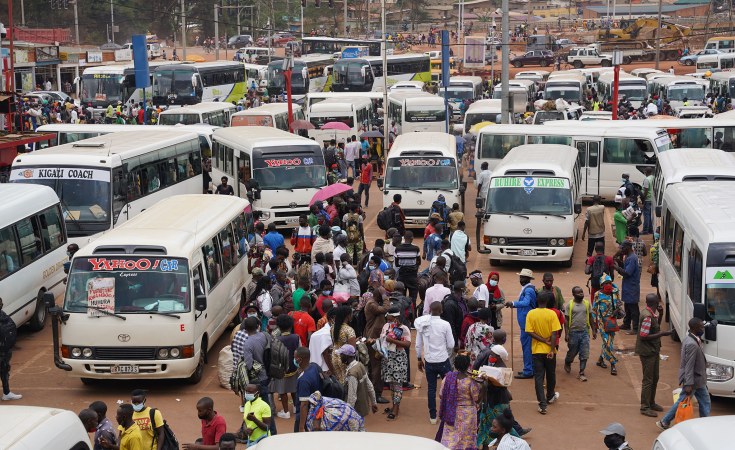Chris Kost, a public transport expert working with the Institute for Transportation and Development Policy (ITDP), a global organisation that has worked with over 100 cities to design and implement transport and urban development systems, says the best way that Kigali can deal with its public transport challenges is by implementing a Bus Rapid Transit (BRT).
The BRT is a high-capacity public transport service that generally runs on dedicated lanes and corridors to avoid delays that typically slow regular bus services.
Although the characteristics of each system may vary, most BRT buses operate on dedicated lanes, allowing them to zoom past traffic and offer fast and predictable journey times. Buses only stop at designated stations where passengers typically prepay the fare before boarding, which helps streamline and speed up operations.
Services run frequently and are operated by large vehicles--often articulated or even bi-articulated buses, meaning they can carry large amounts of people quickly and efficiently.
Building a BRT is much cheaper than many advanced public transport technologies such as metro or light rail, and partly due to this, the system is enjoying growing popularity in Africa, where six systems are already operational and another 10 are under development.
BRT corridors are already up and running in Dar es Salaam, Lagos, and in the South African cities of Cape Town, George, Johannesburg, and Pretoria.
Another 10 are currently under planning or construction around Africa including Abidjan, Dakar, Dar es Salaam (phases three and four), Douala, Kumasi, Maputo, and Ouagadougou.
Rwanda has such a system proposed in its master plan for Kigali, and some work has already been done in terms of making a feasibility study and preliminary design for it.
Speaking to The New Times, Kost said the Government of Rwanda has already made many strides in improving public transport, for example by getting the informal sector organised and shifting to smart card fare collection. He noted, however, that since Kigali is continuing to grow, there is a need for public transport to keep up with that growth.
"And that means investing in an adequate bus fleet, but it also means having dedicated broad space for buses because we need to free them from the traffic jam," he said.
And to do this, he said, there is a need to change from thinking that traffic problems are solved by building wider roads and flyovers which are an expensive solution.
"We can provide mobility to the citizens without having to spend a huge amount of money," he said.
"It is key that we start planning for the future in Kigali. We need to think about how to implement the BRT system since that would make sure that even as congestion grows worse, you have a good alternative if you want to use public transport," he added.
With a high-quality BRT, public transport is able to carry a large number of passengers at high speed and with a good reliable service, Kost said.
"One good example is the BRT in Dar es Salaam. The city implemented a high-quality BRT that currently has its first phase on 21 kilometres, carrying around 200,000 passengers per day. The Dar es Salaam BRT system cut travel time by more than half," he noted.
According to the World Bank, Africa's cities are the fastest-growing in the world, with the region's urban population increasing by about 3.5 per cent each year.


